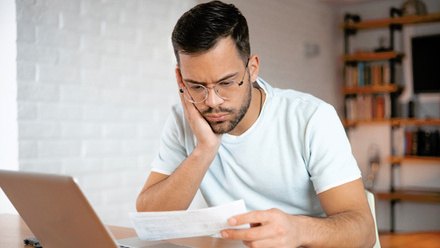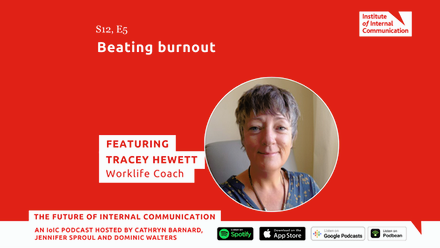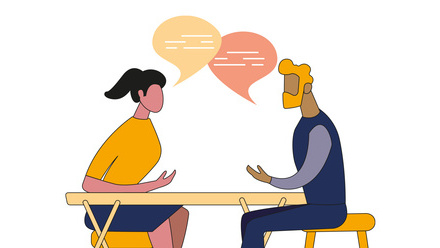In this piece, we're covering some top tips and advice on how to look after yourself. As internal communicators, we spend lots of time writing messages and sharing advice for others, but it is also important to look after ourselves. It can be difficult to switch off when you're expected to absorb the news to share it in your organisation.
There's no question that the news is difficult to read and absorb right now. What we're seeing is distressing. Mental health charity Mind has shared some things that might help you feel a bit less stressed:
Limit your news intake
Watching or reading the news can be a helpful way to stay informed but it can also increase our anxiety or fear. Try only looking at certain times of the day, for a limited duration, and then doing something relaxing afterwards. You could turn off notifications on your phone, avoid prime-time TV news slots and avoid listening to radio updates, if only for a few hours. Go for a walk and leave your phone at home or try a mindful activity such as reading, colouring or meditation. Exercise is also a great tool for distracting your mind – you can't check your phone while you're in a spin class!
Stick to trusted news sources
There is a lot of speculation out there, especially on social media. Make sure to stick to reliable, trusted news sources that don't engage in what ifs. You could also seek out positive and uplifting news stories to counteract news related anxiety. The website Positive News is a good place to start.
Tailor your feeds
It can be tempting to go online and see what others are saying. But that might leave you feeling anxious – especially if people are sharing content you're trying to avoid or posting concerning feelings or opinions. Try taking a break or limiting how you use social media. Make sure to regularly ask yourself 'is this helping me, or am I doom scrolling?'
Talk to someone about how you're feeling
Remember, it's important to respect other people's boundaries too. If you can't talk to someone close to you, the Samaritans are available 24/7 to talk to.
Eat properly and hydrate, even if you don't feel like it
Your body signals get messed up when you're anxious, so you need to artificially take over and think about these routines. Eat at regular intervals whether you have an appetite or not, and if you don't drink enough your body becomes distressed. It's important to meet your basic needs, or things can feel much worse.
Help others
Activism can be a great antidote to feelings of helplessness. Helping others is one of the five steps recommended by the NHS to improve mental wellbeing and there are countless ways to help with the Ukraine crisis. You could donate and several charities have launched appeals.
- British Red Cross Ukraine Appeal
- Save the Children is calling for donation to help it distribute essential aid to families.
- UNICEF
- Refugee charity Choose Love have launched an emergency appeal to support the Ukrainian people. Donations will support projects providing vital aid and services to those still in and fleeing the country, including emergency medical care, food, shelter, clothes, legal support, support for the LGBTQIA+ community and mental health support.
- UN Refugee Agency (UNHCR)
- Association of Ukrainians in Great Britain
Anxiety is a natural human response. We experience it when we feel we're under any sort of threat. The NHS and Anxiety UK agree on some ways to avoid anxiety: eat well, get outside, put your phone down, connect with people and rest. These are all pretty basic pieces of advice, but when you're stressed, they can be difficult to do consistently.
If you need further support, you could reach out to:
Take care of yourselves and reach out for support it you need to.






